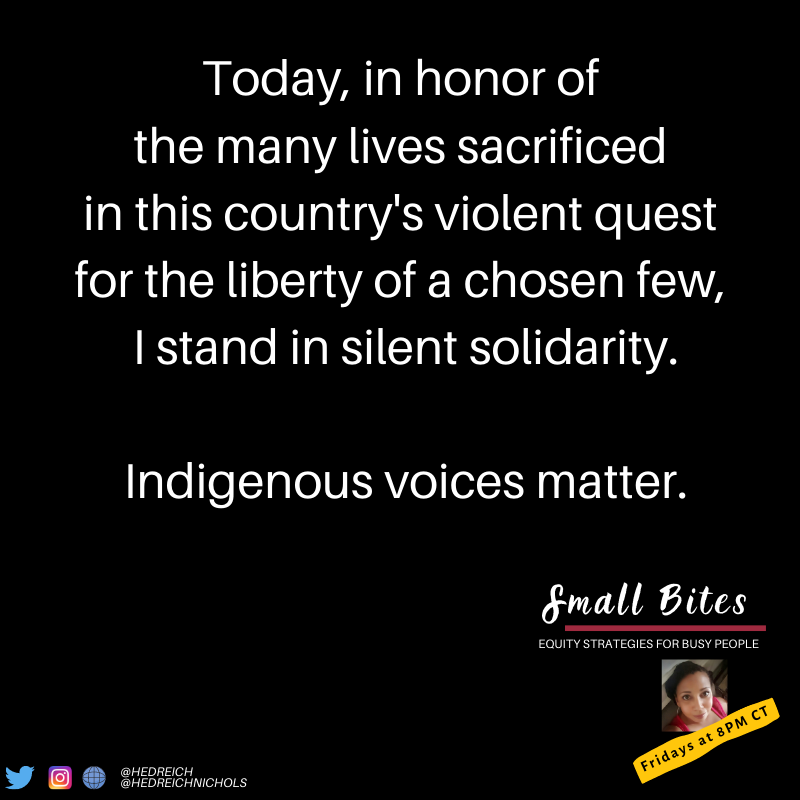Who Are You?
Small Bites Friday Five 1-15-20:
20-30m – Listen to NYT The Daily’s reporter talk about the resurgence of white nationalist violence—violence that really never went away.
15-20m – Watch Grey’s anatomy and Station 19, both Shonda Rhimes shows, explore issues of race, bias and survival in the face of them. Both shows are on ABC, ABC Go and Hulu. Here’s an article on their relevance.
10-15m – Read Marcus Lu’s article on 50 categorized cognitive biases. Pay special attention to the one called “moral luck”. Reflect to see if you’ve been guilty of that, or any others.
5-10m – Read this Common Sense Media article about talking to students of all ages about recent current events. If you’re a fast reader, explore the comments and practice not getting angry. There is practice for both “sides”.
0-5m – Use this form to let me know what you are struggling with in trying to become a more inclusive educator and let’s start a dialogue. The cohort starts this month and there are a few spots left.
This week was supposed to be all about how to talk to children in times of civil unrest. Those of you who watch SmallBites know that I firmly believe we should strive to be one nation under God. However, I forgot that there are some folks, as much as I hate to admit it, who want that one nation to be a nation of Whites only. Many, who won’t quite go that far, believe that the nation should be at least whites only in power. That is, I’m sure, as difficult to read as it is for me to write.
In addition to my own son’s run-ins with White men who want him to go back to where he came from, I have seen people in power aid and abet insurrection and move us toward civil war. I have seen this country go from something I wanted to believe in to something I am almost afraid of. I know that as a Black person there is a certain lack of safety for me just by the virtue of my skin color. Did you know, for instance that Black and indigenous females are more likely to be targeted by human traffickers?
Still, I have been indoctrinated enough to believe that I’ll be ok. This is a democracy, and I will be OK. But is it? We’re no longer considered a full democracy, and there is evil in high places. Online spaces like Gab, Signal, Telegram and others are now quiet hubs for people who hate me to congregate and plan my demise. Sound dramatic? It might be. But– it may not be. I drove to Arkansas 2 years ago past a field where they were burning crosses. School districts have beefed up security because their students have been threatened on social media with kidnappings and lynchings. This is not a movie, this is America.
What does any of this have to do with teaching and learning? Everything.
If you believe that all your students have equitable opportunities for learning–and even for safety– you are misguided. Learn, read, research to find out whether your students really are safe. And if they feel unsafe, please, don’t try to convince them otherwise. You can, however, remind them that safety is a luxury but not a condition of success or even wellbeing. Read them the words of Maya Angelou. Let them know that there is a resilience in our spirit and that we will continue to rise. Tell that to your Black students, your Brown and indigenous students, students from sexual minorities and any other students who don’t fit the mold of insurrectionists. Mostly, tell them that you stand by them and that, although you may not know what it’s like to be in their shoes, you will walk beside them.

